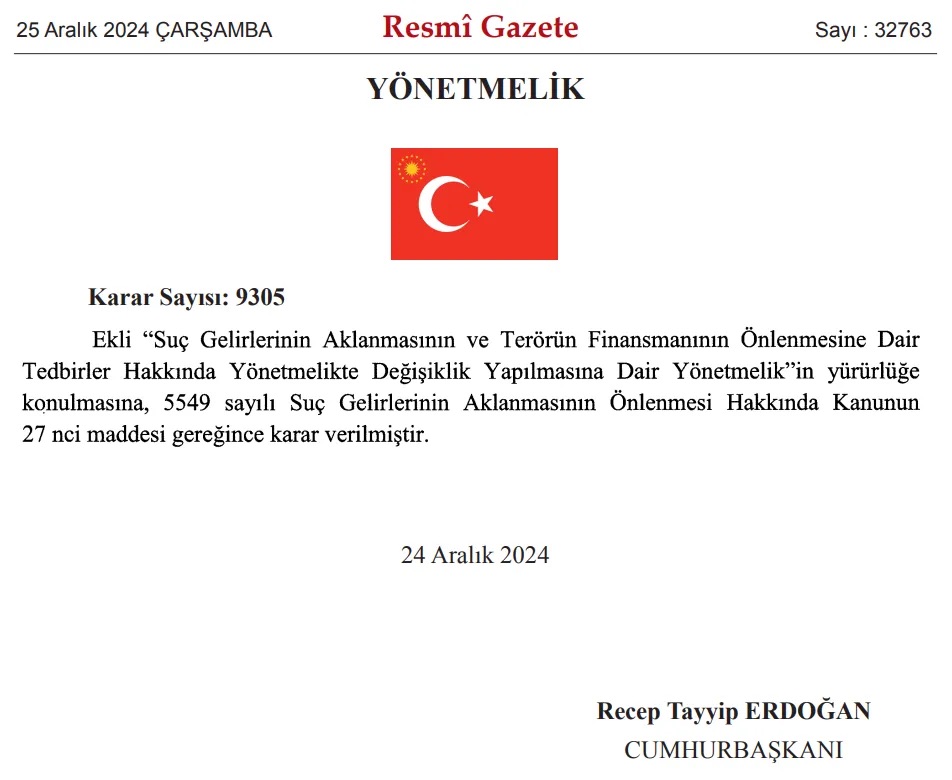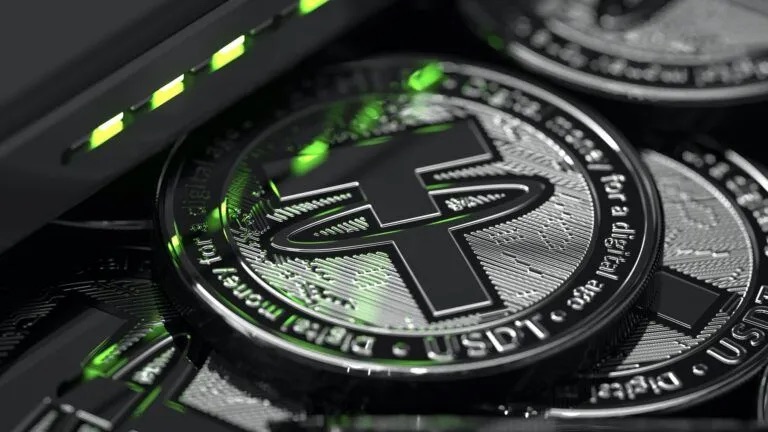Recently, the Turkish government announced a series of stricter anti-money laundering regulations for cryptocurrencies, a move that has quickly attracted widespread attention from the industry.
Written by: Beosin Compliance Team
With the rapid development of the global cryptocurrency market, anti-money laundering (AML) and compliance regulation have gradually become a focus for countries. Recently, the Turkish government announced a series of stricter anti-money laundering regulations for cryptocurrencies, which has quickly drawn widespread attention from the industry. These new regulations will officially take effect on February 25, 2025, demonstrating Turkey's determination in the field of cryptocurrency regulation and providing an important reference for the compliance development of the global market.
Interpretation of New Regulations: Strengthening Information Transparency and Transaction Security
On December 25, 2024, the Turkish government issued an announcement clarifying the main provisions of the new anti-money laundering regulations, focusing on transaction threshold settings, risk transaction handling, and restrictions on unregistered wallets, aiming to enhance the transparency and security of cryptocurrency transactions.

Turkey's New Cryptocurrency Regulations
Source: Official Gazette of the Republic of Turkey
1. Transaction Threshold Setting
According to the new regulations, when users execute cryptocurrency transactions exceeding 15,000 Turkish Lira (approximately 425 USD), they must submit complete identity information to the service provider. For transactions below this threshold, service providers may optionally collect relevant information. This provision aims to ensure the traceability of large transactions, effectively curbing the flow of illegal funds.
2. Handling of Risk Transactions
If the sender of the cryptocurrency fails to provide sufficient information, their transaction will be marked as "high risk." In this case, service providers have the right to take various measures, including refusing the transaction, limiting cooperation with relevant financial institutions, or even terminating business relationships with the trading party. This provision grants service providers greater discretion, helping to enhance the overall security of the transaction system.
3. Restrictions on Unregistered Wallets
Wallet addresses not registered on the platform are also subject to strict regulation. Service providers are required to collect the sender's identity information; otherwise, the relevant transactions will be restricted. This measure aims to combat illegal activities conducted through anonymous wallets, such as money laundering and financing terrorism.
Through these measures, the Turkish government hopes to establish a more transparent and secure trading environment in the cryptocurrency field, laying the foundation for the future standardized development of the industry.

Global Context: Aligning with the European MiCA Framework
The introduction of Turkey's new regulations coincides with a significant regulatory transformation in the global cryptocurrency industry. The European Markets in Crypto-Assets Regulation (MiCA) will take effect on December 30, 2024, and is regarded as the world's first comprehensive regulatory framework covering crypto assets.
Turkey's new regulations clearly draw on international advanced regulatory experiences such as MiCA, marking its alignment with global cryptocurrency compliance standards. This convergence with international norms not only helps enhance the attractiveness of the Turkish market but also provides a more trustworthy trading environment for international investors. Furthermore, strengthening regulation is crucial for addressing cross-border financial crimes such as money laundering and terrorist financing.
Industry Impact: Turkey's Compliance Path and Market Prospects
As the fourth largest cryptocurrency market globally, Turkey's trading volume reached 170 billion USD in 2023, surpassing Russia and Canada, showcasing its significant position in the cryptocurrency field. However, Turkey still faces many challenges between regulation and market development. Although buying, holding, and trading cryptocurrencies is legal in Turkey, the use of cryptocurrencies as a payment tool has been prohibited since 2021. This means that while investors can trade freely, they cannot directly apply cryptocurrencies in daily consumption scenarios.
Turkey's cryptocurrency market shows strong growth momentum, driven by its unique economic environment and the public's strong demand for digital assets. For a long time, Turkey has faced high inflation and currency devaluation issues, prompting more people to view cryptocurrencies as a tool for hedging risks and protecting wealth. However, the Turkish government's attitude towards cryptocurrencies is relatively cautious; although legal trading is allowed, the restrictions on payment scenarios indicate that regulators are still trying to balance innovation and risk control.

1. Promoting Market Standardization
The new regulations will significantly enhance market transparency and transaction security, increasing investor confidence in crypto assets. In a standardized market environment, participants can enjoy higher quality services, further promoting the healthy development of the market.
2. Accelerating Corporate Compliance Processes
As of December 2024, 77 cryptocurrency companies have applied for operating licenses from the Turkish Capital Markets Board. This reflects the positive response of enterprises to the new regulations and lays the foundation for broader market participation in the future.
3. Long-term Development Potential
Although the new regulations impose restrictions on certain trading activities, the Turkish government maintains an open attitude towards tax policies. For example, it does not tax profits from crypto assets, only imposing a 0.03% transaction tax, demonstrating support for market development. This balanced regulatory approach will aid the long-term development of Turkey's cryptocurrency market.
免责声明:本文章仅代表作者个人观点,不代表本平台的立场和观点。本文章仅供信息分享,不构成对任何人的任何投资建议。用户与作者之间的任何争议,与本平台无关。如网页中刊载的文章或图片涉及侵权,请提供相关的权利证明和身份证明发送邮件到support@aicoin.com,本平台相关工作人员将会进行核查。



